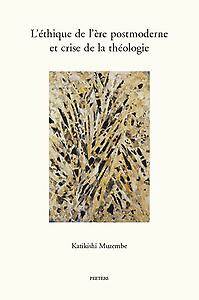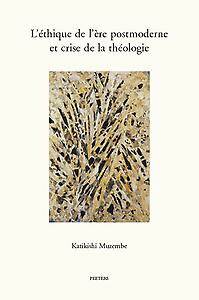
- Afhalen na 1 uur in een winkel met voorraad
- Gratis thuislevering in België vanaf € 30
- Ruim aanbod met 7 miljoen producten
- Afhalen na 1 uur in een winkel met voorraad
- Gratis thuislevering in België vanaf € 30
- Ruim aanbod met 7 miljoen producten
Zoeken
€ 76,00
+ 152 punten
Omschrijving
English summary: This book has a remarkable epistemological ambition for the future of theological science in contemporary societies. The author argues for a theological profile that is consistent with the perspective of postmodern epistemologies. He is convinced that there is a critical situation of disintegration, which affects the instituted versions of systematic theology and Christianity in the face of the new world order with regard to the challenge of finding solutions to the new challenges of human history. For the author, theology must succeed in acquiring new protocols of its teachings and commitments through appropriate strategies for its re-insertion into the dynamics of the new ethical order, whose main features are democracy and human rights, the rule of justice and good governance of the earth, and against the structures of tyranny, cheating, and crime in all their forms of political and social, economic, and ecological manifestation. The author comes to proclaim the end of the era of a troubled and conflictual relationship between Christian thought and secularism. He believes that theology must inform present-day Christianity to its public relevance, pragmatic value, and ethical utility through the effort of a just elaboration of the phenomenology of secularism, and of an intelligent articulation on the postmodern standards of ethics, whose dynamics currently balance our pluralist societies. French description: Ce livre est d'une ambition epistemologique tres remarquable pour l'avenir de la science theologique dans les societes contemporaines. L'auteur plaide pour un profil du theologique qui soit conforme a la perspective des epistemologies postmodernes. Il est convaincu qu'il existe une situation critique de desintegration, qui frappe les versions instituees de la theologie systematique et du christianisme face au prestige du nouvel ordre mondial, quant a l'enjeu de regulation des solutions aux nouveaux defis de l'histoire humaine. Pour l'auteur, la theologie doit arriver a se doter de nouveaux protocoles de ses enseignements et de ses engagements, a travers des strategies adequates de sa necessaire reinscription a la dynamique du nouvel ordre ethique, dont les traits marquants sont la democratie et des droits de l'homme, le regne de la justice et de bonne gouvernance de la terre, contre les structures de la tyrannie, de la tricherie, et de la criminalite sous toutes leurs formes de manifestation politique et sociale, economique, securitaire et ecologique. L'auteur en arrive a proclamer l'ere de la fin d'une relation troublee et conflictuelle de la pensee chretienne avec la laicite. Il estime que la theologie doit faire gagner au christianisme de notre epoque le pari de sa pertinence publique, de sa valeur pragmatique et de son utilite ethique, a travers l'effort d'une juste elaboration de la phenomenologie de la laicite, et d'une intelligente articulation sur les standards postmodernes de l'ethique, dont la dynamique preside actuellement aux equilibres de nos societes pluralistes.
Specificaties
Betrokkenen
- Auteur(s):
- Uitgeverij:
Inhoud
- Aantal bladzijden:
- 371
- Taal:
- Frans
- Reeks:
- Reeksnummer:
- nr. 72
Eigenschappen
- Productcode (EAN):
- 9789042935174
- Verschijningsdatum:
- 29/10/2019
- Uitvoering:
- Paperback
- Formaat:
- Trade paperback (VS)
- Afmetingen:
- 160 mm x 240 mm
- Gewicht:
- 566 g

Alleen bij Standaard Boekhandel
+ 152 punten op je klantenkaart van Standaard Boekhandel
Beoordelingen
We publiceren alleen reviews die voldoen aan de voorwaarden voor reviews. Bekijk onze voorwaarden voor reviews.








